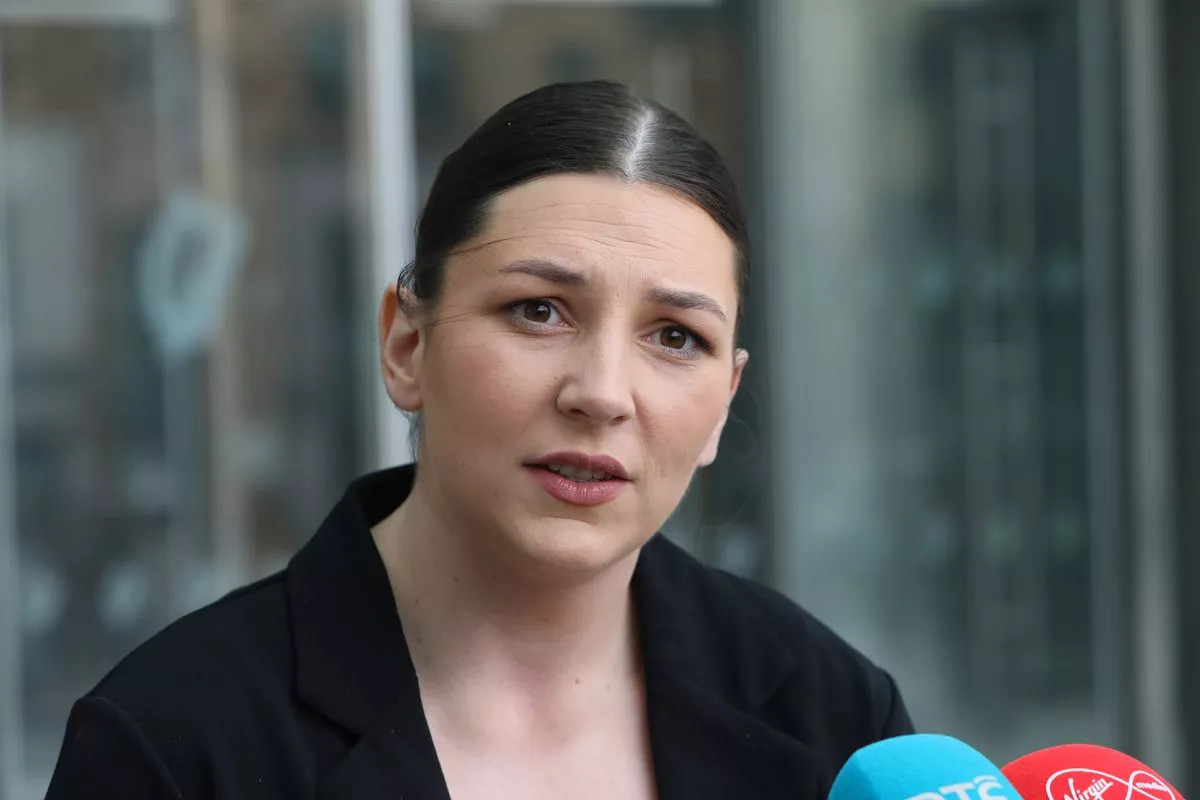Bláthnaid Raleigh’s story is a testament to courage and resilience in the face of unimaginable trauma. In 2019, Raleigh was raped by Jonathan ‘Johnny’ Moran in a garden shed in Galway, a horrific event that profoundly impacted her life. However, Raleigh’s bravery in waiving her anonymity to name her attacker and share her story publicly has not only brought her a sense of justice but has also paved the way for other survivors to find their voice and seek support.
Moran was sentenced to nine years imprisonment with the final year suspended for the rape.
Raleigh’s decision to go public was driven by a deep sense of loneliness and a desire to help other victims of sexual assault. Many survivors choose to remain anonymous, and Raleigh herself felt isolated since the attack. By sharing her story, she aimed to create a space where other women in similar situations could reach out to her, ensuring they did not feel alone in their experiences. Her courage has transformed her from a victim into an advocate, providing hope and strength for others.
The assault occurred when Raleigh, then 21, was socialising with friends in Galway. The group, all from Mullingar, spent the night together, and Raleigh initially felt safe. However, as the evening progressed and others left or went upstairs, she found herself alone with Moran. The atmosphere changed dramatically when Moran switched off the light, revealing a side of him that was starkly different from the friendly demeanour he had displayed earlier. Raleigh described this moment as terrifying, marking the beginning of her ordeal.
The physical and emotional aftermath of the rape was devastating. Raleigh recalled watching CCTV footage of herself leaving the shed, comparing it to a horror movie. The sight of her own desperate escape, leaving her shoes behind, was a haunting reminder of the trauma she endured. In the immediate aftermath, she fled the house, bleeding and disoriented, and sought refuge in the company of strangers who recognised her distress and helped her get to a garda station. Their intervention was crucial in ensuring that she received medical attention and reported the assault.
 The trial and conviction of Moran were pivotal moments in Raleigh’s journey towards reclaiming her life. Moran was sentenced to eight years in prison, a verdict that validated Raleigh’s suffering and provided a sense of justice. The legal process, however, was gruelling and prolonged, putting Raleigh’s life on hold for five years. She deferred her plans to pursue a master’s degree, unable to focus fully on her education until the trial concluded. The psychological toll of constantly fearing encounters with Moran, who was also from Mullingar and active in the local rugby club, was immense.
The trial and conviction of Moran were pivotal moments in Raleigh’s journey towards reclaiming her life. Moran was sentenced to eight years in prison, a verdict that validated Raleigh’s suffering and provided a sense of justice. The legal process, however, was gruelling and prolonged, putting Raleigh’s life on hold for five years. She deferred her plans to pursue a master’s degree, unable to focus fully on her education until the trial concluded. The psychological toll of constantly fearing encounters with Moran, who was also from Mullingar and active in the local rugby club, was immense.
Raleigh’s experience of anxiety and hyper-vigilance was not confined to the courtroom. Social activities that once brought joy became sources of fear and stress. She described the necessity of positioning herself with her back to the wall in pubs, constantly scanning for Moran and worrying about the safety of other women. This hyper-awareness and constant fear significantly disrupted her ability to enjoy normal life activities.
The impact of the assault extended to Raleigh’s family as well. Her brothers, who played for the same rugby club as Moran, faced their own challenges. One brother had to switch clubs, facing backlash from teammates who were unaware of the reasons behind his departure. The other continued to play, sometimes finding himself on the field against Moran, a painful reminder of the assault that had upended their lives.
Despite these challenges, Raleigh’s determination to see the legal process through and her willingness to share her story publicly have been transformative. The conviction of Moran marked the beginning of her healing journey. Raleigh expressed that the verdict provided her with the validation she needed to start dealing with her trauma. Seeing Moran face consequences for his actions allowed her to begin reclaiming her life, offering a sense of closure and justice that had been elusive for so long.
Bláthnaid Raleigh’s bravery in naming her attacker and sharing her story is an inspiration. Her actions have not only brought her personal justice but have also highlighted the importance of speaking out against sexual violence. By breaking her silence, Raleigh has given a voice to countless others who may feel isolated and powerless.
If you have experienced any form of abuse, or sexual violence, please reach out to the following …
Rape Crisis Centre – call 1800 77 8888
Women’s Aid – call 1800 341 900
An Garda Siochana – call 999 / 112







